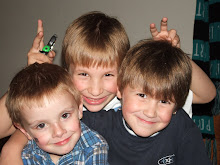Loneliness
Growth and change during college years produces a variety of feelings in students. In addition to feelings of excitement and anticipation, there may also be feelings of loneliness. Loneliness is not necessarily being alone. We may be alone for long periods without feeling at all lonely. On the other hand we may feel lonely in a familiar setting without really understanding why. The best way to begin to understand loneliness is to examine some of the ways people experience it. You may feel lonely when:
- you're alone and you don't feel you have a choice not to be;
- you feel that you're lacking attachments you had in the past;
- you are facing changes in your life--a new school, town, job, or other changes;
- you feel there's no one in your life with whom you can share your feelings and experiences;
- your self-perceptions are that you're unacceptable, unlovable, not worthwhile even if others don't share those perceptions.
Misconceptions About Loneliness
Loneliness can be made more intense by what you tell yourself it means. College students are particularly susceptible to the following misconceptions regarding loneliness:
- "Loneliness is a sign of weakness, or immaturity."
- "There's something wrong with me if I'm lonely. These should be the best years of my life."
- "I'm the only one who feels this way."
If you believe these misconceptions you may believe that loneliness results from a defect in your personality. Research suggests that college students who think of loneliness as a defect tend to have the following difficulties:
- greater difficulty in taking social risks, in asserting themselves, in making phone calls to initiate social contact, in introducing themselves to others, in participating in groups, and in enjoying themselves at parties.
- less skill in self-disclosure, less responsiveness to others, and a greater tendency to approach social encounters with cynicism and mistrust.
- more likelihood of evaluating themselves and others in negative terms and more tendency to expect others to reject them.
Lonely students often report feeling depressed, angry, afraid, and misunderstood. They may become highly critical of themselves, overly sensitive or self-pitying, or they may become critical of others, blaming others for their situations.
When these things happen, lonely students often begin doing things which perpetuate their loneliness. Some students, for example, become discouraged, lose their sense of desire and motivation to get involved in new situations, and isolate themselves from people and activities. Other students deal with loneliness by becoming too quickly and deeply involved with people and activities without evaluating the consequences of their involvement. They may later find themselves in unsatisfying relationships or over-committed to academic or extracurricular activities.
Read more from below link.
http://www.couns.uiuc.edu/brochures/loneline.htm






No comments:
Post a Comment